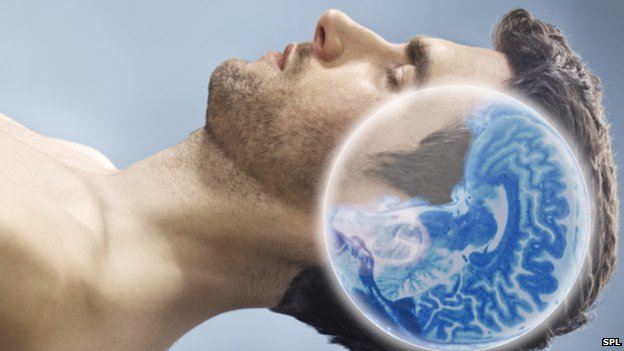Trend: Growing research on the relationship between sleep and Alzheimer’s Disease
 ___
___
The brain may clean out Alzheimer’s plaques during sleep (ScienceNews):
“Bendlin’s studies are part of a modest but growing body of research suggesting that a sleep-deprived brain might be more vulnerable to Alzheimer’s disease. In animal studies, levels of plaque-forming A‑beta plummet during sleep. Other research suggests that a snoozing brain runs the “clean cycle” to remove the day’s metabolic debris — notably A‑beta — an action that might protect against the disease … But while the new research is compelling, plenty of gaps remain. There’s not enough evidence yet to know the degree to which sleep might make a difference in the disease, and study results are not consistent.
A 2017 analysis combined results of 27 studies that looked at the relationship between sleep and cognitive problems, including Alzheimer’s. Overall, poor sleepers appeared to have about a 68 percent higher risk of these disorders than those who were rested, researchers reported last year in Sleep. That said, most studies have a chicken-and-egg problem. Alzheimer’s is known to cause difficulty sleeping. If Alzheimer’s both affects sleep and is affected by it, which comes first? …
The central question — the one that doctors really want to answer — is whether better sleep could treat or even prevent Alzheimer’s. To try to figure this out, Bendlin and her Wisconsin colleagues are now studying people with sleep apnea. People with that condition stop breathing during the night, which wakes them up and makes for a lousy night’s sleep. A machine called a CPAP, short for continuous positive airway pressure, treats the condition.
“Once people start treatment, what might we see in the brain? Is there a beneficial effect of CPAP on markers of Alzheimer’s?” Bendlin wonders. “I think that’s a big question because the implications are so large.”
The Study:
Sleep, Cognitive impairment, and Alzheimer’s disease: A Systematic Review and Meta-Analysis (Sleep). From the Abstract:
- Objectives: Mounting evidence implicates disturbed sleep or lack of sleep as one of the risk factors for Alzheimer’s disease (AD), but the extent of the risk is uncertain. We conducted a broad systematic review and meta-analysis to quantify the effect of sleep problems/disorders on cognitive impairment and AD.
- Conclusion: This meta-analysis confirmed the association between sleep and cognitive impairment or AD and, for the first time, consolidated the evidence to provide an “average” magnitude of effect. As sleep problems are of a growing concern in the population, these findings are of interest for potential prevention of AD.
The Study in Context:
- Bill Gates announces $50 million investment to fight Alzheimer’s Disease
- From Anti-Alzheimer’s ‘Magic Bullets’ to True Brain Health
- 10 million people develop dementia every year
- Report: 35% of worldwide dementia cases could be prevented by modifying these 9 modifiable risk factors
- Sleep-focused neurotech firm Dreem raises $35M
- For a good night’s rest, combine general sleep hygiene with mindful and cognitive techniques


